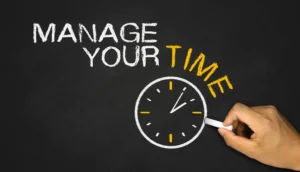
Ever wondered what sets successful people apart? It’s not just their skills or knowledge—it’s their personality!. 94% of millennials are committed to personal improvement, investing an average of $300 per month on self-development. (Source: Statista, 2023). Having a well-rounded personality is more important than ever. Welcome to your transformative journey! Personal development isn’t just a buzzword –it’s a vital aspect of personal and professional growth. It shapes how we interact with others, how we perceive ourselves, and how we face life’s challenges. In this guide, we’ll walk you through the essentials of personal growth, providing you with practical tools and insights to kickstart your self-improvement adventure. Ready to become the best version of yourself? Let’s dive in!
Personal development is the deliberate effort aimed at improving or developing an individual’s talent, potential, self-awareness, knowledge, and personal skills. It encompasses the activities and practices to enhance various aspects of one’s life, including employability and wealth, through continuous growth and self-improvement. It’s about refining who you are and how you present yourself to the world. This journey involves improving emotional intelligence, communication skills, self-confidence, and much more.
But Why Does it Matter?
Because developing a strong personality isn’t just about being charismatic—it’s about building resilience, adaptability, and leadership qualities. These are the traits that can help you succeed in both your personal and professional life!
Personal development isn’t just a feel-good concept; it’s grounded in psychological science. Your personality is influenced by both genetic factors and your environment. While some traits are inherited, many aspects of your personality are shaped by your experiences, relationships, and choices.

Benefits of Personal Development
Personal development comes with a host of benefits that can positively impact every area of your life:
- Boosts Confidence: Developing a strong personality helps you overcome self-doubt and build a robust sense of self-belief. When you know who you are, you’re less likely to be swayed by external opinions or circumstances.
- Enhances Communication Skills: A well-developed personality allows you to express yourself clearly and effectively, both verbally and non-verbally. This is crucial in both personal and professional interactions.
- Fosters Emotional Intelligence: Personal development teaches you to understand your emotions and those of others. You’ll learn empathy, self-regulation, and effective stress management—all essential for maintaining healthy relationships.
- Strengthens Relationships: As you develop your personality, your interpersonal skills improve, leading to stronger, healthier relationships with family, friends, and colleagues.
- Increases Career Opportunities: A strong, appealing personality makes you stand out in interviews and workplace environments, increasing your chances of career advancement.
- Encourages Lifelong Learning: Personal development fosters a mindset geared towards continuous improvement and learning, keeping you engaged and adaptable in an ever-changing world.
Common Misconceptions About Personal Development
When it comes to personal development, several misconceptions often cloud our understanding. These myths can prevent people from pursuing growth or even cause them to abandon their journey altogether. Let’s explore some of the most common misconceptions about personal development and set the record straight!
- “Personality is Fixed and Cannot Be Changed.”
- “Personal Development is Only for Extroverts.”
- “Personal Development is Just About Improving Social Skills.”
- “Only Those with ‘Bad’ Personalities Need to Develop Themselves.”
- “Personal Development is a Quick Fix.”
- “You Have to Change Who You Are to Develop Your Personality.”
- “Personal Development is All About Being Positive All the Time.”
- “Only Expensive Courses and Books Can Help You Develop Your Personality.”

To embark on the journey of personal development, you need a solid foundation. This foundation is built on self-awareness, goal-setting, envisioning your future, and overcoming internal barriers.
Techniques for Increasing Self-Awareness
Self-awareness is the cornerstone of personality development. Understanding who you are, what drives you, and how you react to different situations is crucial. Here are some effective techniques to boost self-awareness:
- Journaling
- Meditation
- Personality Assessments
Setting SMART Goals
Setting goals is a critical part of personal growth. But not just any goals — SMART goals! These are Specific, Measurable, Achievable, Relevant, and Time-bound. Here’s how to set them:
Specific: Clearly define what you want to achieve. For example, instead of saying, “I want to improve my communication skills,” say, “I want to be able to speak confidently in front of a group of 20 people.”
Measurable: Make sure you can track your progress. For instance, “I will practice public speaking once a week and record my speeches to monitor improvement.”
Achievable: Set realistic goals that are within your capabilities. This doesn’t mean settling for less, but rather setting goals that stretch you without being impossible.
Relevant: Ensure your goals align with your broader personal or professional objectives. If improving communication skills will help you in your career, it’s a relevant goal.
Time-bound: Set a deadline. This creates a sense of urgency and motivates you to act. For example, “I want to achieve this level of confidence in three months.”
Creating a Personal Vision Statement
A personal vision statement acts as your North Star, guiding you toward your long-term goals. It encapsulates your values, passions, and what you hope to achieve in life. Here’s how to create one:
Reflect on Your Values: Think about what matters most to you. What are the core values that guide your actions?
Identify Your Passions and Strengths: What are you passionate about? What are your natural talents and strengths?
Envision Your Future: Picture where you want to be in 5, 10, or even 20 years. What does success look like to you?
Draft Your Statement: Combine these elements into a concise, inspiring statement that captures your vision for your life. For example, “To be a compassionate leader who inspires and empowers others to reach their full potential.”
Overcoming Limiting Beliefs and Self-Doubt
We all have limiting beliefs—those pesky thoughts that tell us we’re not good enough or that we can’t achieve our goals. Overcoming them is key to personal growth. Here’s how to tackle these mental barriers:
Identify Your Limiting Beliefs: Pay attention to the negative thoughts that hold you back. Write them down and examine their validity.
Challenge and Reframe: Replace these negative thoughts with positive affirmations. For example, instead of thinking, “I’m not smart enough to succeed,” reframe it to, “I am capable and have the skills to learn and succeed.”
Take Small Steps: Build confidence by taking small, manageable steps toward your goals. Each small win will help reinforce a positive mindset and diminish self-doubt.
Seek Support: Sometimes, we need a little help. Don’t hesitate to seek support from friends, mentors, or even professional coaches who can provide guidance and encouragement.
Essential Personal Development Skills for Beginners
Embarking on the journey of personal development can be both exciting and daunting. To get started, it’s essential to focus on fundamental skills that will serve as building blocks for your growth.
Effective Time Management and Productivity Hacks
Time is a precious resource, and managing it well is crucial for personal growth. Effective time management helps you prioritize tasks, avoid procrastination, and achieve more in less time. Here are some productivity hacks to help you get started:
The Pomodoro Technique: Work for 25 minutes, then take a 5-minute break. This method helps maintain focus and prevents burnout by breaking work into manageable chunks.
Prioritization with the Eisenhower Matrix: Categorize tasks into four quadrants: urgent and important, important but not urgent, urgent but not important, and neither urgent nor important. Focus on tasks that are both urgent and important, and plan for those that are important but not urgent.
Batching Similar Tasks: Group similar tasks together to avoid context switching and save mental energy. For example, handle all your emails at a specific time each day instead of checking them constantly.
Set Boundaries: Learn to say no to non-essential tasks or distractions that do not align with your goals. Protect your time!
Improving Communication Skills
Effective communication is a vital skill for personal and professional success. It involves more than just speaking, it includes listening, understanding, and conveying your message clearly. Here are key aspects of improving your communication skills:
Active Listening: Pay full attention to the speaker, avoid interrupting, and show empathy. Nod, smile, or use verbal affirmations like “I see” or “I understand” to encourage them to share more.
Assertiveness: Learn to express your thoughts, feelings, and needs clearly and respectfully without being aggressive. Use “I” statements, like “I feel” or “I need,” to communicate your perspective without sounding confrontational.
Public Speaking: Overcome the fear of speaking in front of others by practicing regularly. Start with small groups and gradually work up to larger audiences. Remember, the key is to be clear, concise, and engaging.
Developing Emotional Intelligence
Emotional intelligence (EQ) is the ability to understand, use, and manage your emotions positively. It helps you communicate effectively, empathize with others, overcome challenges, and defuse conflict. Here’s how to develop it:
Self-awareness: Recognize your emotions and how they affect your thoughts and behavior. Journaling or mindfulness practices can help increase self-awareness.
Self-regulation: Learn to control your impulses and express your emotions appropriately. Techniques like deep breathing, counting to ten, or stepping away from a stressful situation can help.
Empathy: Practice putting yourself in others’ shoes to understand their feelings and perspectives. This builds better relationships and enhances your ability to work with diverse groups of people.
Social Skills: Enhance your ability to communicate, collaborate, and resolve conflicts effectively. This includes active listening, verbal communication, and non-verbal cues.
Cultivating a Growth Mindset
A growth mindset is the belief that abilities and intelligence can be developed through dedication and hard work. It’s essential for overcoming challenges and achieving personal growth. Here’s how to cultivate it:
Embrace Challenges: View challenges as opportunities to learn and grow, not as obstacles. Acknowledge that every setback is a setup for a comeback.
Learn from Criticism: Don’t take feedback personally. Use it as a learning tool to improve and develop.
Celebrate Effort, Not Just Results: Focus on the process of learning and growing rather than just the end result. This helps you stay motivated even when progress seems slow.
Stay Curious: Keep asking questions and seek new experiences. A curious mind is always open to learning.

Physical Well-being as a Cornerstone of Personal Development
Physical well-being isn’t just about looking good—it’s about feeling good, too! A healthy body supports a healthy mind, which is why taking care of your physical health is crucial to personal development. Let’s explore how physical well-being serves as a foundation for self-improvement and overall growth.
The Mind-Body Connection in Self-Improvement
The mind and body are deeply interconnected. A healthy body can lead to a healthy mind, and vice versa. This relationship is key to personal development:
Mental Clarity and Focus: Regular physical activity increases blood flow to the brain, improving mental clarity, focus, and cognitive function. When you feel physically strong and healthy, you’re better equipped to tackle challenges and pursue your goals.
Mood Regulation: Exercise releases endorphins—natural mood lifters that help combat stress, anxiety, and depression. Physical activity can act as a powerful tool for emotional regulation, helping you maintain a positive outlook.
Building Resilience: Physical well-being builds mental toughness and resilience. Pushing through a tough workout, for example, can teach you perseverance and grit, qualities that are transferable to other areas of life.
Nutrition Basics for Optimal Performance
Nutrition plays a pivotal role in your physical well-being and personal development. “You are what you eat”. The right diet fuels your body and mind, giving you the energy and focus needed to reach your goals:
Balanced Diet: Aim for a balanced diet rich in fruits, vegetables, whole grains, lean proteins, and healthy fats. Each food group provides essential nutrients that your body needs to function optimally.
Hydration: Staying hydrated is key for overall health. Water supports every function in the body, from digestion to cognitive performance. Aim for at least 8 glasses of water a day, and more if you’re active.
Mindful Eating: Pay attention to what you eat and how it makes you feel. Avoid processed foods high in sugar and unhealthy fats, as these can lead to energy crashes and negatively impact mood and concentration.
Timing and Portions: Eat regular meals and pay attention to portion sizes. Smaller, more frequent meals can help maintain energy levels throughout the day, while large, heavy meals can cause sluggishness.
The Importance of Quality Sleep and Recovery
Sleep is often overlooked in personal development, but it’s crucial for both physical and mental health. Quality sleep is the body’s natural recovery process:
Restorative Sleep: Sleep is when your body repairs itself—muscles recover, the immune system strengthens, and the brain processes information from the day. Aim for 7-9 hours of quality sleep each night to support optimal function.
Sleep Hygiene: Create a sleep-friendly environment by keeping your bedroom dark, cool, and quiet. Establish a calming pre-sleep routine, like reading or meditating, to signal to your body that it’s time to wind down.
Consistent Sleep Schedule: Go to bed and wake up at the same time every day, even on weekends. A consistent sleep schedule helps regulate your body’s internal clock, improving the quality of your sleep.
Recovery and Relaxation: Allow your body time to recover, especially after intense workouts. Incorporate rest days into your fitness routine and practice relaxation techniques, such as deep breathing or stretching, to help your body and mind unwind.

Congratulations! You’ve taken the first step on an incredible journey of self-discovery and growth. Remember, personal development is a lifelong process – there’s no finish line, only continuous improvement. As you implement the strategies and insights from this guide, be patient with yourself and embrace the journey. Every small step forward is a victory. So, what’s your first move going to be? Why not start by setting one achievable goal today? Your future self will thank you for the investment you’re making right now. Make it happen!





Impressive 😊
Very Helpful